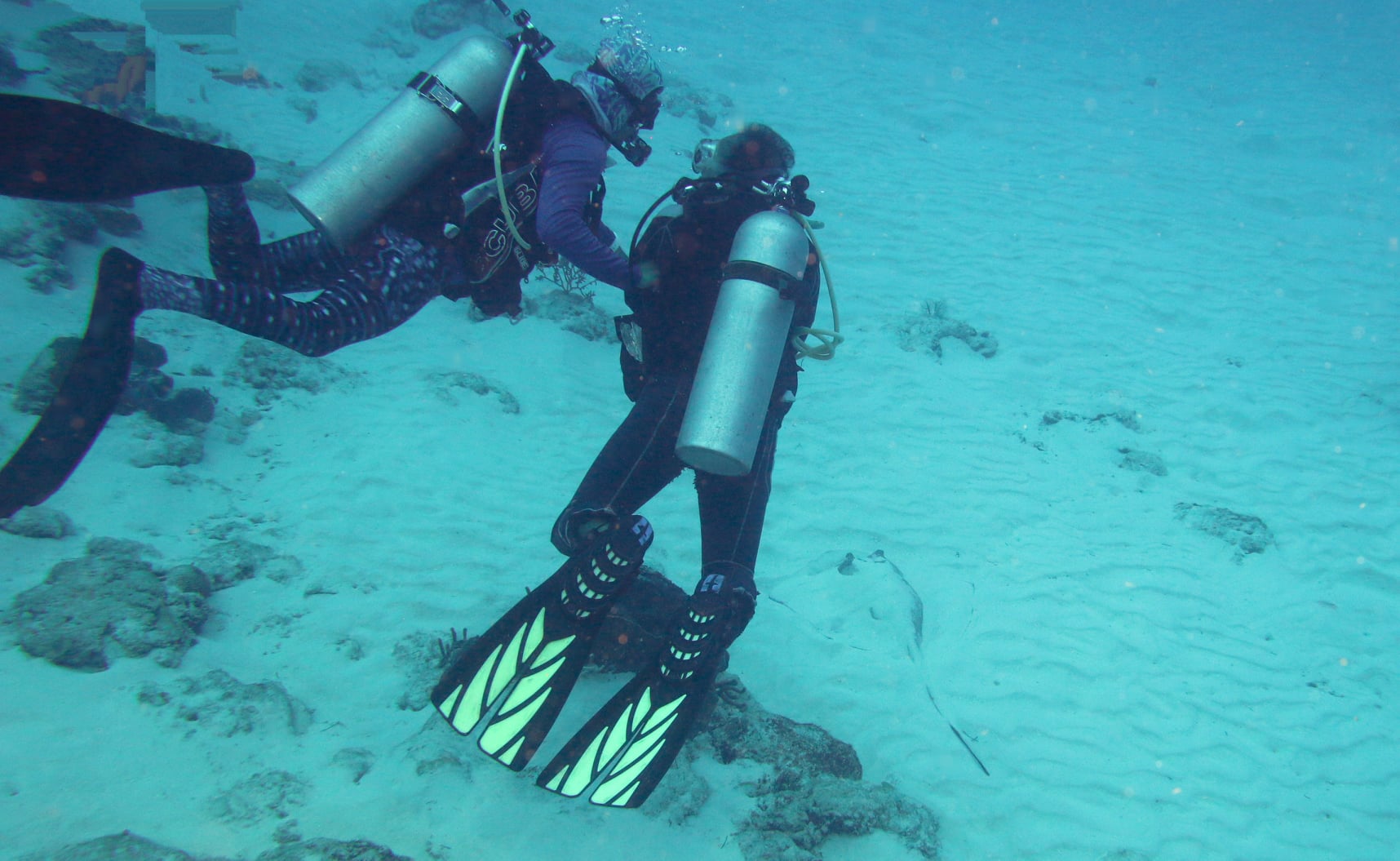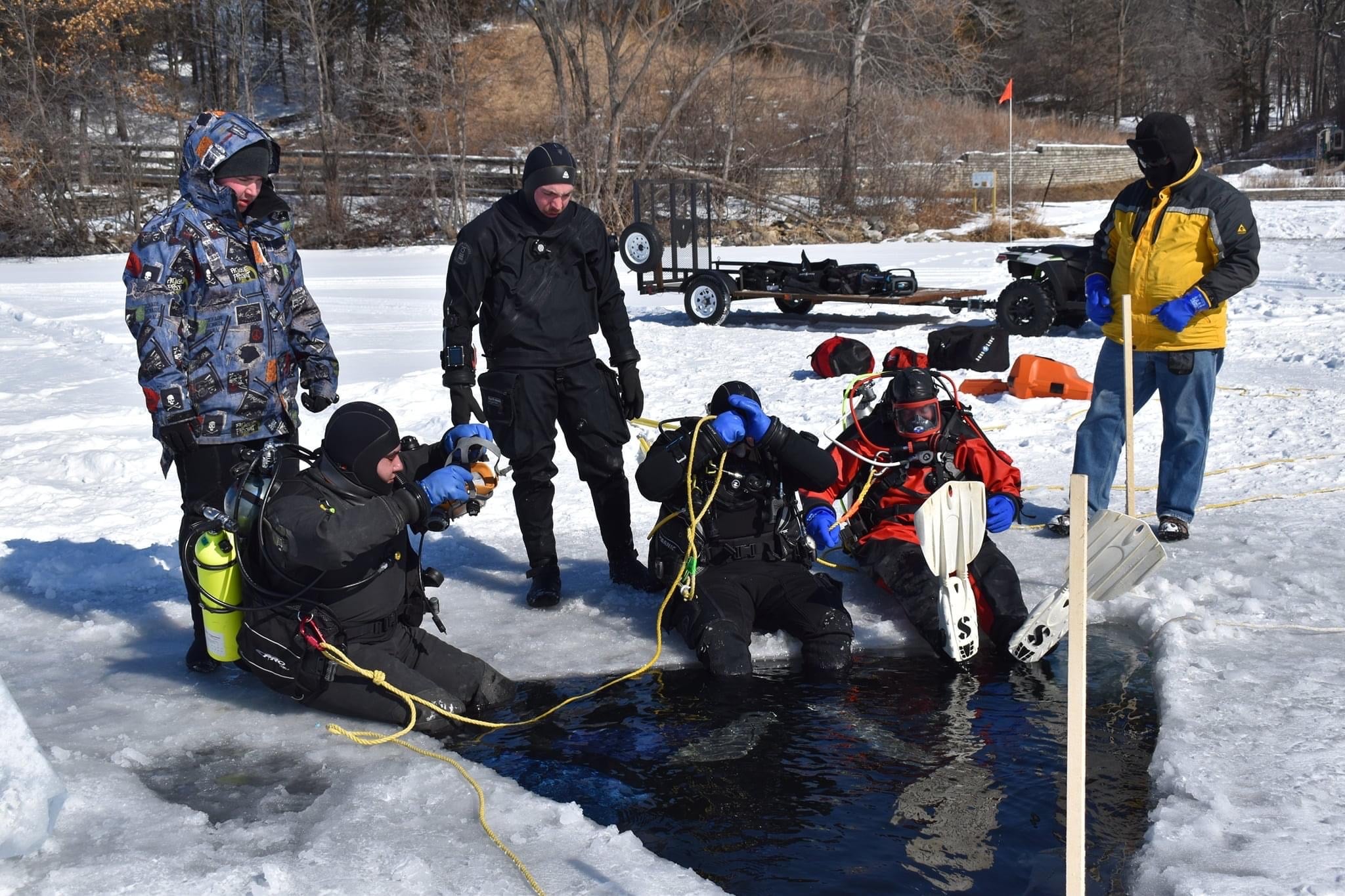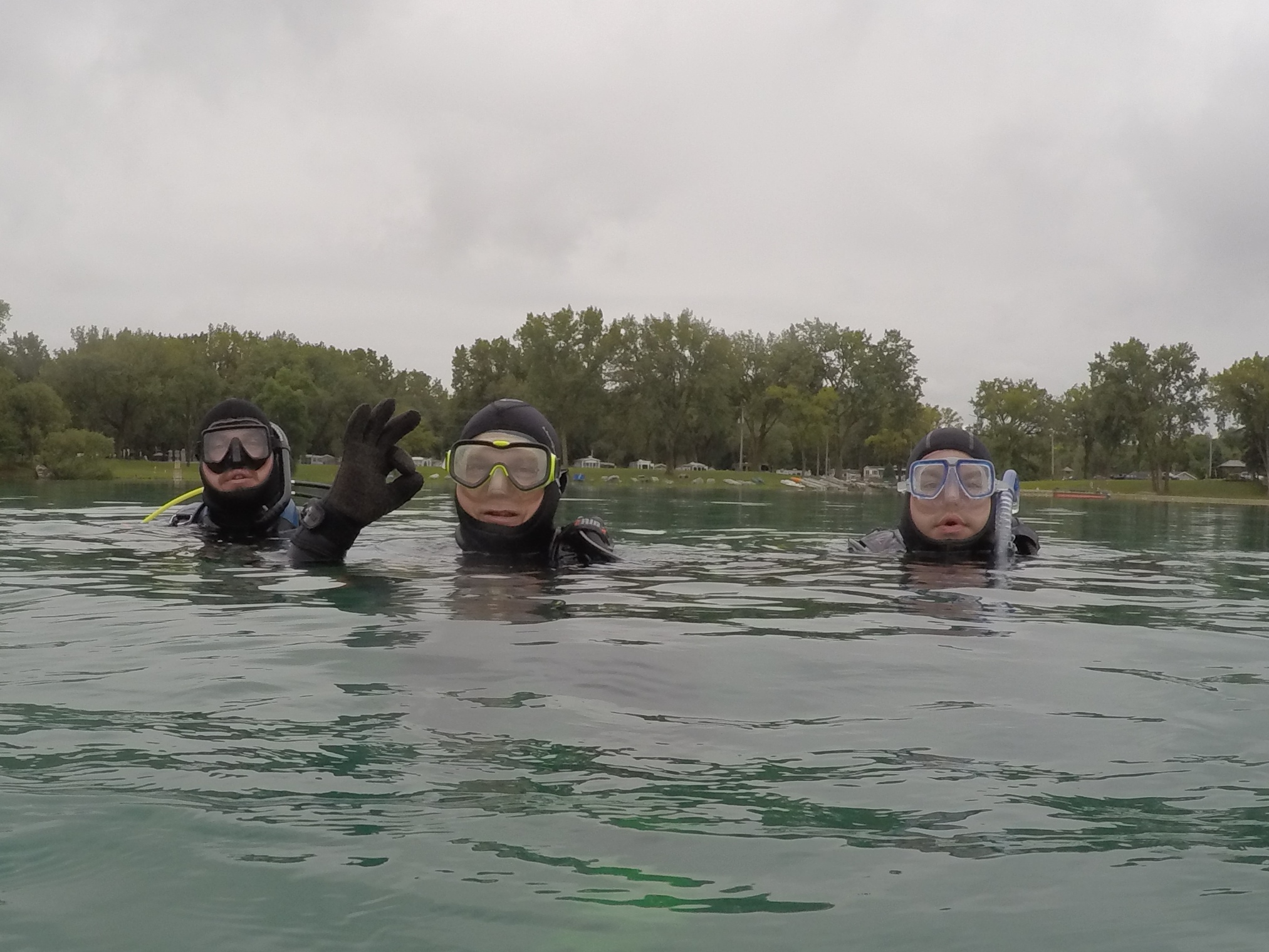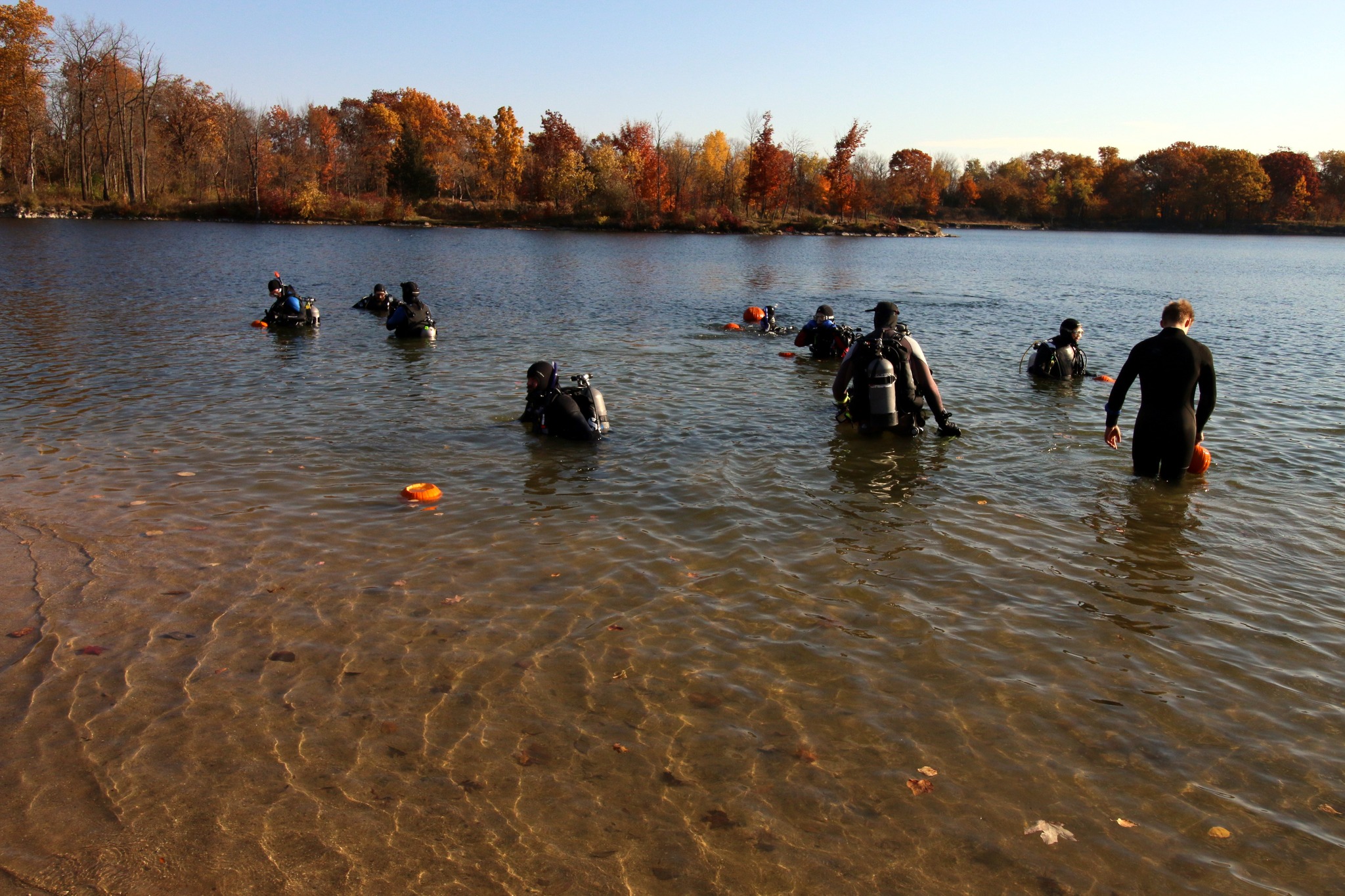Headlines
Why You Should Learn to Scuba Dive Locally
If you’ve ever gone on a cruise or a trip to the Caribbean, you’ve probably gone snorkeling and seen others scuba diving nearby. Perhaps you thought, someday I want to try scuba so I can explore more of the underwater world. Did you know that you can scuba right here in Waukesha County?
Local sites such as Lannon Quarry, Lake Keesus, Pewaukee Lake, Nagawicka Lake and Middle Genesee Lake all offer unique experiences for divers.
Each local dive site is different in terms of what divers may see. In shallow water, pan fish like blue gills and bass are common fish seen during dives. In deeper water, divers may see northerns, carp and occasionally muskies. At the quarries, divers will see interesting rock walls, rock ledges, railroad tracks, old ore carts and tools. Divers may also come across old boats or vehicles that have sunk, logs and things that have been in the water for years.
Michael Haynes, Manager of Underwater Connection in Menomonee Falls said, “One of the unique things we have in our area when diving is bottle hunting. So many of the lakes have such a unique history with the old resorts and homes around them, which inevitably left some lost items and assorted trash in the lakes, including a lot of glass bottles, which are now antiques.” He continued, “And now, many divers are going into the local lakes just to find these antique bottles, which is one of the only forms of treasure hunting we really have in our area. But it can be really fun, especially when you find some older stuff that has value.” Some antique bottles can be worth thousands of dollars, but most of the bottles found could be sold at a flea market for $5 or $10.
“You never know what you’ll come across. One of my very first students found a Tommy Gun in one of the local lakes, which was such a unique find. Another item some friends found was a chainlink coin purse with coins from the 1800s, which was pretty special,“ Haynes shared.
In addition to the Waukesha County dive sites, there are numerous shipwrecks you can dive to in Wisconsin, several of which can be viewed by snorkelers and kayakers as well.
How Haynes Got Hooked on Scuba Diving at a Young Age
When Underwater Connection came to his Menomonee Falls North Middle School eighth grade class to offer Discover Scuba as an after-school activity, little did Michael Haynes know he would become manager of the business and attain numerous scuba certifications decades later.
“I’ve always loved all things water – swimming, fishing, boating. And I was always curious about what was down there in the water,” Haynes said. He remembers getting in the pool with the gear during the Discover Scuba course, being able to stay underwater and not have to hold his breath, or come back up to catch his breath, and just be in the water like a fish. “I was in eighth grade and I didn’t know how or when I was going to do it, but I knew at some point in my life scuba diving was going to be a big part of what I did, whether it be for fun or otherwise.” It wasn’t until he received a college graduation gift of scuba diving lessons from his parents that he officially started his diving journey.
“I first got certified in 1994 and it’s been a downward spiral ever since,” Haynes joked, referencing a descent into the water for diving.
Haynes referred to himself as a typical dive store groupie at the time, going to Underwater Connection several times a week, looking at the dive magazines and annoying the heck out of the staff with all his questions. “When I first got certified, I was always looking for opportunities to go diving and started going on some of the local outings with them,” said Haynes. He started working part-time, helping out with classes as an instructor and at the store while working his full-time corporate job.
He recalls vividly the day he realized he wanted scuba to be his career. “I remember sitting in my cubicle at work, looking out the window, looking at the sun, and knowing I couldn’t do this for the rest of my life. I knew I had to be outside, in the water.” Haynes researched new career opportunities locally and in the tropics, but as luck would have it, landed at Underwater Connection as manager in 1998 and has been there ever since. Haynes holds numerous certifications for both recreational and technical diving, and is a Master Instructor with the Professional Association of Diving Instructors (PADI), Instructor with Scuba Diving International (SDI)/Technical Diving International (TDI) and a Divers Alert Network (DAN) Instructor, the highest attainable scuba certifications. His experience and certifications enable him to share his love of diving with the community.
Getting Started with Scuba
Anyone age 10 and older can learn to scuba, although there are some age restrictions for children. It’s important for children to learn diving properly, and starting at age 8, PADI offers two course options, the Bubblemaker program and the Seal Team program. Both programs offer an introduction to the emotions of diving and breathing underwater and give kids action-packed fun in a pool environment. Once they turn 10, they are old enough to complete the Junior Open Water Diver course and begin diving with a professional diver or certified parent/guardian.
There is no maximum age for adult divers, but there are some health restrictions. Generally, scuba is not a sport that demands a high physical effort. If you are in good shape, can tread water or float for ten minutes and can swim 200 yards, you can scuba dive. Those 50 years and older can visit a physician and, as long as they don’t have any health problems that could pose a danger when underwater, they can secure a medical waiver in order to dive.
There are many benefits of scuba diving, including the opportunity to explore the underwater world and connect with nature. The physical benefits can include increased strength and flexibility, reduced blood pressure and increased emotional well-being. A big benefit is meeting new people through the diving community, as well as building relationships. And scuba diving can be a family sport, with courses available for the whole family and family dive adventures.
Like any sport, there is an investment. Getting your open water diving certification can cost between $400 and $600, and purchasing a set of scuba diving gear run $700 up to $2,000. But renting equipment is also an option. Local open water dives cost between $40 and $150 each.
To introduce the community to scuba diving, Underwater Connection has many scuba courses available to individuals. The dive shop holds Discover Scuba classes at a network of local schools as part of their physical education curriculum. They also have a robust program for area fire and rescue teams as well as for commercial divers.





